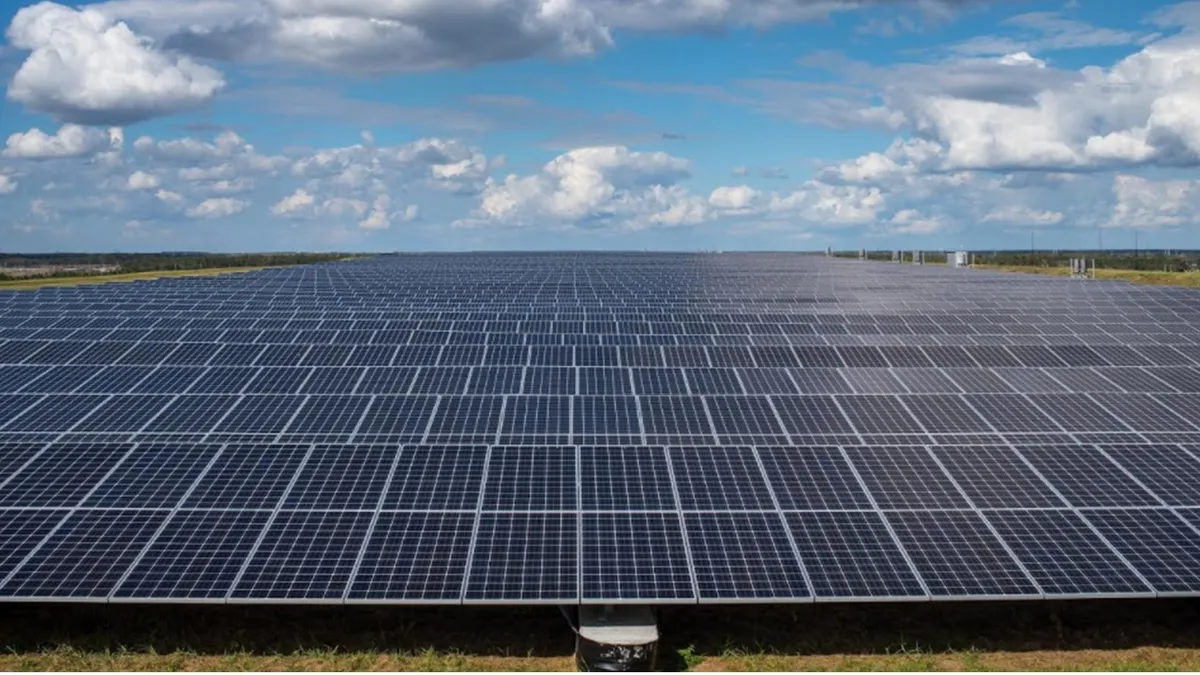Dive Brief:
-
Duke Energy reached a compromise with lawmakers Monday on a South Carolina bill that will remove the cap on net metering in the state and maintain existing "one to one" net metering policy for another two years.
-
Duke was the sole remaining naysayer on House Bill 3659, taking issue with structured contracts under the Public Utility Regulatory Policies Act (PURPA). An amendment was added that keeps the 10 year minimum contract for qualifying facilities, but requires developers to go to the state's Public Service Commission (PSC) to get approval for any power purchase agreement (PPA) longer than 10 years.
-
One requirement a facility must meet to secure a contract for longer than 10 years is that the agreement remains below utilities' avoided costs. The bill passed the House unanimously in February and is awaiting debate on the Senate floor.
Dive Insight:
Contestation over PURPA contracts is common among developers and utilities in the U.S.
The federal law requires utilities to compensate qualifying facilities for renewable energy they supply to the grid. Contract length and level of compensation are often the points of tension: Last month, a Montana district court judge ruled the state's PSC intentionally lowballed rates and PPA lengths to kill small solar projects.
Duke's argument in South Carolina in part relied on the premise that longer contracts are bad for ratepayer interests, locking them into longer term rates when energy prices are subject to fluctuations.
"[W]e did have a disagreement on the part of the bill related to long-term purchases from utility-scale solar installations (i.e. solar farms) under PURPA," Duke spokesperson Ryan Mosier told Utility Dive in an email. "Through continued collaboration, we believe we will end up with a law that is in the best interest of our customers and that will give the Public Service Commission discretion in the future to make sure that customers aren't overpaying for federally-required solar purchases."
Developers involved in the process disagree that long term contracts put ratepayers at risk, but compromised at maintaining the 10 year minimum, despite Duke's push for five.
"Where we settled is 10 years is reasonable and anything longer we want to see lower than the currently filed utilities avoided cost rate," Bret Sowers, vice president of development and strategy for solar developer Southern Current, who worked closely on the bill told Utility Dive. "So at the end of the day, a compromise. I don't feel like it negatively affects the opportunity the solar industry has in the state and certainly is aligned with what we know from the finance community."
While Duke's operations only cover about a third of South Carolina, it was the only utility to continue negotiations on the bill once it passed the House.
"We've had a broad compromise early on, but this one issue around 10 years has been a lingering issue since the beginning and one we've been diligently trying to work out," said Sowers.
Some of that opposition likely comes from work in North Carolina, where it offered 15 year standard contracts under directives from the legislature and the PSC, but felt those contracts were too long "in an environment that at the time had rapidly declining natural gas prices," he said.
In January of last year, Duke pushed through HB 589, shifting the state's strategy for handling PURPA contracts, reducing the size of qualifying facilities eligible for PURPA payments from 5 MW to 1 MW and requiring facilities larger than 1 MW to compete for a competitive solicitation.
"That was a public policy position that Duke Energy really was pushing in North Carolina," said Sowers. "So, I think a lot of the pushback that we were seeing in South Carolina on this particular provision has, I think, more to do with a difference between how the solar industry and how Duke Energy wanted to procure solar moving forward."














